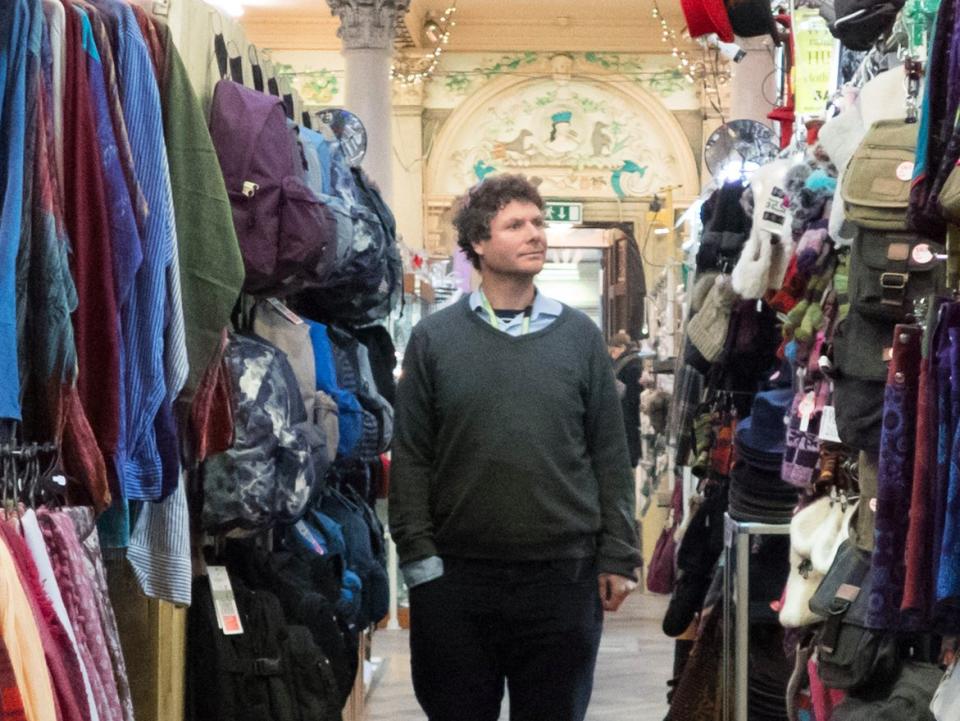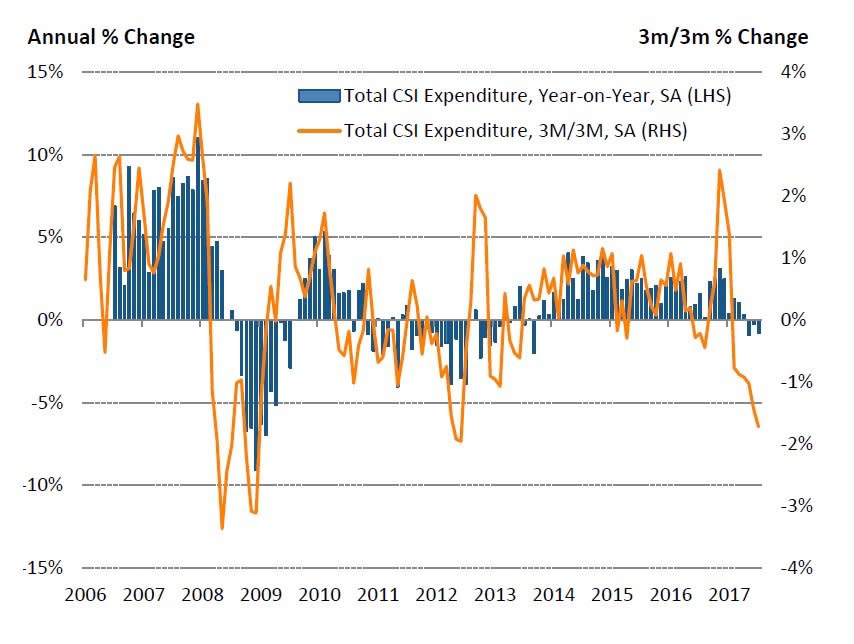Consumer spending is having its biggest slump in 4 years, as Brits spend less on clothes and holidays

Matt Cardy/Getty Images
LONDON — UK consumer spending fell for the third month in a row in July, according to a survey by card giant Visa.
Visa's Consumer Spending Index found a 0.8% fall in consumer spending last month, when compared to July 2015. It follows similar declines in May and June.
While it might not sound like a significant fall, a prolonged slump like this has not been seen since February 2013, when spending fell for five straight months.
Kevin Jenkins, UK & Ireland Managing Director at Visa, says in a release: "The figure provides further evidence that rising prices and stagnant wage growth are squeezing consumers’ pockets."

VisaInflation is currently at 2.6% and expected to peak at around 3% later this year. Prices are being driven higher by last year's collapse in the value of the pound post-Brexit, which makes imported goods more expensive.
Wages are growing by just 2%, meaning consumers have to absorb a real price rise of 0.6%. That means spending less, dipping into savings (which are already depleted), or borrowing.
Annabel Fiddes, a principal economist at IHS Markit, the data company that helped Visa put the figures together, said in a statement: "Reduced spending comes at a time when the UK economy has been expanding at a relatively modest pace, while households have been facing strong increases in living costs, and a slowdown in earnings growth. Notably, the latest ONS figures show total real pay falling at the quickest pace for nearly three years."
"Alongside the renewed squeeze on household budgets, uncertainties linger over the direction of the economy and the outcome of the ongoing Brexit negotiations, which is weighing down consumer confidence. All this makes it seem unlikely that consumer spending will recover in the current challenging conditions, and adds to expectations that the Bank of England will not hike rates anytime soon." (You can read more on the dilemma facing the Bank of England here.)
Visa's data looks at all money spent on its debit, credit, and pre-paid cards to get an idea of how consumers are spending across the UK. Roughly a third of all money spent in the UK uses some form of Visa card and the company adjusts its figures to ensure they represent the wider spending landscape.
Visa found a particularly big slowdown in the transportation sector, as Brits favoured staycations over going abroad, and in the clothing sector. Transport and communication spending was 6.1% lower than a year earlier, while spending on clothing and footwear fell by 5.2%.
UBS warned in April that it was seeing a "dramatic reduction in consumer discretionary income and intention to spend," and forecast that the clothing sector would be worst hit.
Visa's Jenkins said in the release: "There were still some bright spots in July, with hotels, restaurants and bars reporting a 6% increase. The sector is likely to have benefited from an early surge in summer staycations, as the weak pound made holidaying at home more attractive."
The shift of retail online also continues. Face-to-face spending fell by 3.7% in July, while online sales rose by 3.6%.
NOW WATCH: TOP STRATEGIST: Bitcoin will soar to over $20,000 by cannibalizing gold
See Also:
The retail apocalypse is heading straight for Kroger, Whole Foods, and Aldi
RBS is setting up an HQ in Amsterdam to prepare for a 'Hard Brexit'
DON'T MISS: This is what Mark Carney knows but dare not say out loud

 Yahoo Finance
Yahoo Finance 
